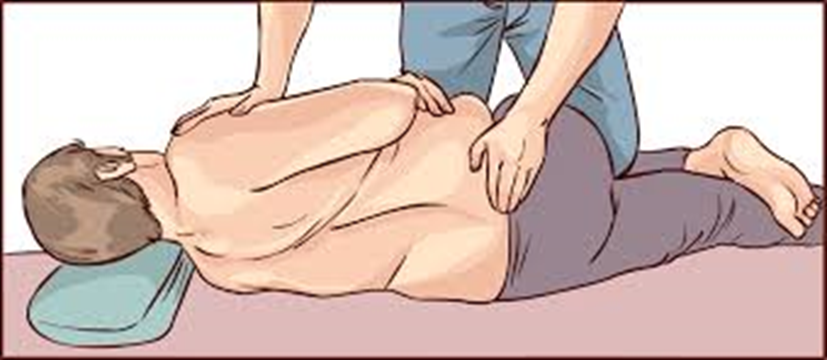The nurse understands that whether or not a client experiences a crisis as a result of a stressful situation depends on:
The client’s perception of the event, the availability of supports, and the availability of adequate coping mechanisms.
Previous experiences, the availability of medication, and the desire to cope.
Faith in the psychiatrist, the availability of financial resources, and previous level of functioning.
The time of day, the client’s mood, and the availability of escape from the situation.
The Correct Answer is A
Choice A Reason:
The client’s perception of the event, the availability of supports, and the availability of adequate coping mechanisms.
This is the correct response. A client’s perception of a stressful event plays a crucial role in determining whether they experience a crisis. If the client views the event as overwhelming and beyond their ability to cope, they are more likely to experience a crisis. Additionally, the availability of social supports, such as family, friends, and community resources, can provide emotional and practical assistance, reducing the likelihood of a crisis. Adequate coping mechanisms, such as problem-solving skills, emotional regulation, and stress management techniques, also play a significant role in helping the client manage stress effectively.
Choice B Reason:
Previous experiences, the availability of medication, and the desire to cope.
While previous experiences can influence how a client responds to stress, they are not the sole determinants of whether a crisis will occur. The availability of medication can help manage symptoms of stress or anxiety, but it does not address the underlying perception of the event or the availability of supports. The desire to cope is important, but without adequate coping mechanisms and support, it may not be sufficient to prevent a crisis.
Choice C Reason:
Faith in the psychiatrist, the availability of financial resources, and previous level of functioning.
Faith in the psychiatrist and the availability of financial resources can provide some support, but they do not directly address the client’s perception of the event or their coping mechanisms. Previous level of functioning is important, but it is not the primary factor in determining whether a crisis will occur. The client’s current perception and available supports are more critical in this context.
Choice D Reason:
The time of day, the client’s mood, and the availability of escape from the situation.
The time of day and the client’s mood can influence their immediate response to stress, but they are not the primary determinants of whether a crisis will occur. The availability of escape from the situation may provide temporary relief, but it does not address the underlying perception of the event or the availability of supports and coping mechanisms.
Nursing Test Bank
Naxlex Comprehensive Predictor Exams
Related Questions
Correct Answer is C
Explanation
Choice A Reason:
Acupuncture.
Acupuncture is a traditional Chinese medicine practice that involves inserting thin needles into specific points on the body to balance energy flow and promote healing. While it is a form of manual therapy, it is not part of chiropractic medicine. Chiropractors focus on the musculoskeletal system, particularly the spine, and do not typically use acupuncture as a primary treatment modality.
Choice B Reason:
Surgical procedures.
Surgical procedures are not part of chiropractic medicine. Chiropractors are not licensed to perform surgeries. Their practice is centered around non-invasive treatments, primarily involving manual adjustments and manipulations of the spine and other joints. Surgery is outside the scope of chiropractic care and is typically handled by medical doctors or surgeons.
Choice C Reason:
Spinal manipulation.
This is the correct response. Spinal manipulation, also known as chiropractic adjustment, is a core component of chiropractic medicine. Chiropractors use their hands or specialized instruments to apply controlled force to spinal joints, aiming to improve spinal alignment, reduce pain, and enhance physical function. This technique is fundamental to chiropractic care and distinguishes it from other forms of manual therapy.

Choice D Reason:
Prescription medications.
Prescription medications are not part of chiropractic medicine. Chiropractors do not prescribe medications; instead, they focus on manual therapies, exercise, and lifestyle counseling to manage and prevent musculoskeletal issues. The use of medications is typically managed by medical doctors or other healthcare providers.
Correct Answer is ["0.5"]
Explanation
Step 1: Identify the available concentration of fentanyl.
- The ampule contains 100 micrograms of fentanyl in 2 mL.
Step 2: Determine the dose required.
- The nurse needs to give 25 micrograms of fentanyl.
Step 3: Calculate the volume (mL) needed for the required dose.
- Use the formula: (Dose required ÷ Dose available) × Volume of available dose.
Step 4: Substitute the values into the formula.
- (25 micrograms ÷ 100 micrograms) × 2 mL
Step 5: Perform the division.
- 25 micrograms ÷ 100 micrograms = 0.25
Step 6: Perform the multiplication.
- 0.25 × 2 mL = 0.5 mL
Result: The nurse will give 0.5 mL for the correct dose.
Final Answer: 0.5 mL
Whether you are a student looking to ace your exams or a practicing nurse seeking to enhance your expertise , our nursing education contents will empower you with the confidence and competence to make a difference in the lives of patients and become a respected leader in the healthcare field.
Visit Naxlex, invest in your future and unlock endless possibilities with our unparalleled nursing education contents today
Report Wrong Answer on the Current Question
Do you disagree with the answer? If yes, what is your expected answer? Explain.
Kindly be descriptive with the issue you are facing.
